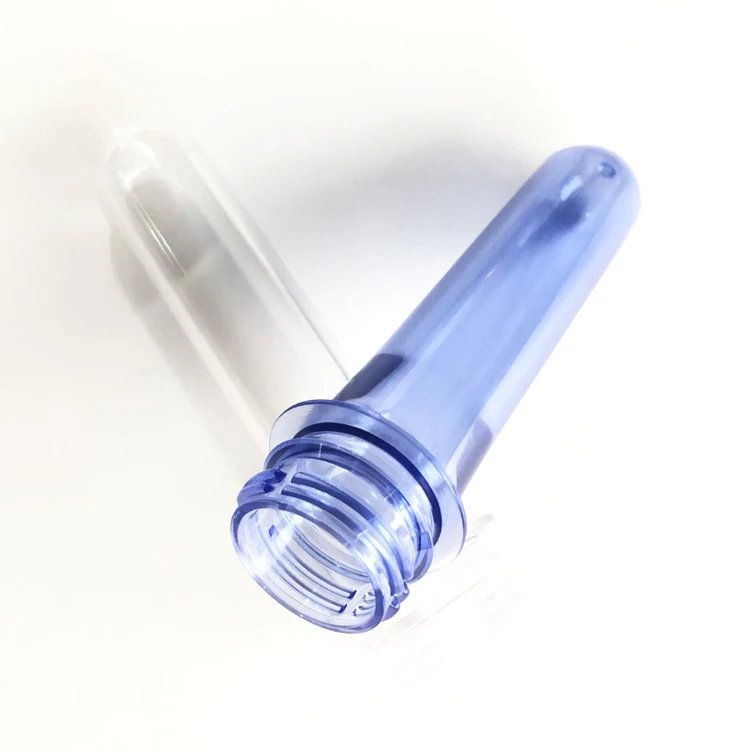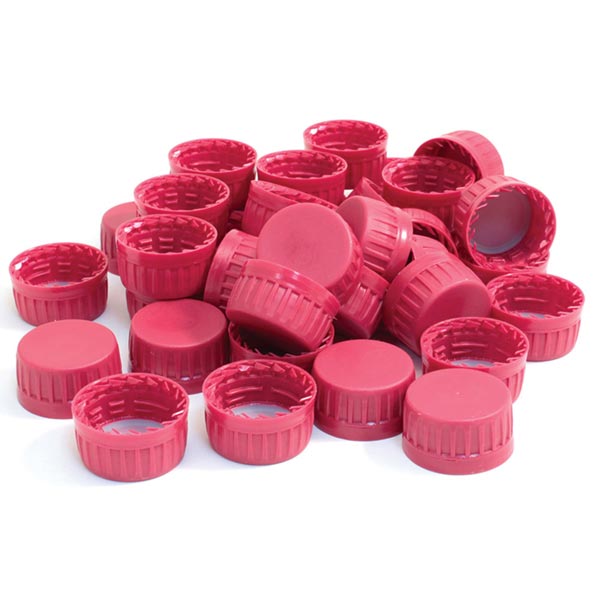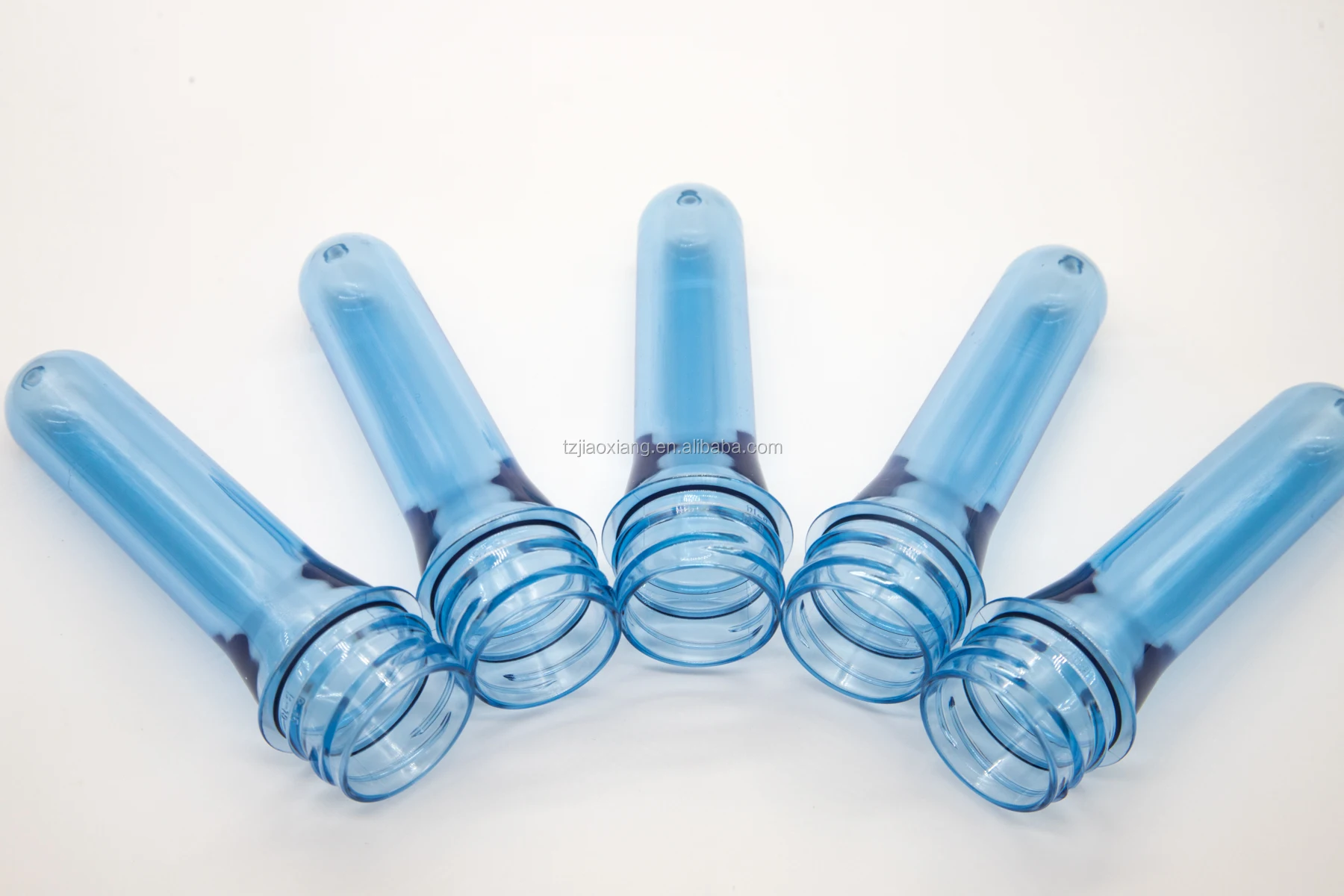
In the first stage, PET pellets are injection molded into preforms, which consist of thick bodies that resemble laboratory test tubes, with threaded neck finishes onto which closures (bottle caps) will be applied after product filling. Large scale production of PET bottles for beverages are produced by a 2-step process. With less margin for error, correct bottle design and manufacturing processes to consistently meet design intent have never been more critical than they are today. Regions of the bottle that do not have sufficient wall thickness will be weak points that can lead to bottle damage or even failure as the filled package makes its way from the filling plant to the consumer. With less PET available to make up the walls of today’s bottles, distribution of the material throughout the bottle walls is critical. This internal pressure subjects the walls of PET bottles to a significant degree of tensile stress. Carbonated soft drinks are typically pressurized to the 4 – 5 atmosphere/bar pressure range. While it is less noticeable for water bottle applications, carbonated soft drink applications have also become much lighter since the year 2000.

Bottle designs have been light-weighted to such an extent that today’s utility water bottles are approaching a “bag with a bottle cap.” Lighter weight bottles reduce cost and help to make PET a more sustainable packaging option. The average weight of a 500 ml PET bottle used to package bottled water has been reduced by approximately 50% since the year 2000. Department of Health and Human Services and funded in part by the DOE Office of Science through the National Virtual Biotechnology Laboratory, a consortium of DOE national laboratories focused on response to COVID-19, with funding provided by the Coronavirus CARES Act.Plastic bottles used for beverages are typically made from a polymer called PET (Polyethylene terephthalate). ORNL’s collection tube manufacturing research efforts are conducted in coordination with the U.S. The preforms will be manufactured by Southeastern Container (SEC), based in North Carolina, which is a co-operative funded and managed by a group of Coca-Cola bottlers. SEC ships PET preforms and bottles to over 50 Coca-Cola bottling and co-packing operations in the US and Canada. This knowledge will be shared with medical sterilization facilities around the country that receive Southeastern Container tubes to sterilize.Īdditional tests have also been carried out on the tubes by ORNL to ensure preforms are leak proof and that bacteria growth can be prevented by high temperature heating or cleaning with an ethanol solution. Sandia National Laboratories, a Department of Energy and National Nuclear Security Administration lab with headquarters in Albuquerque, N.M., is using its Gamma Irradiation Facility and a team of radiation science experts to develop protocols for sterilizing the preforms without damaging the materials. Once the test tubes are produced, they must be sterilized before they can be used in test kits. The preforms also come with a screw-top cap that is tamper-proof and safely seals the tube, preventing leakage and exposure during transport. Soda bottle preforms for a 20oz Coca-Cola bottle are the perfect size to hold the long COVID-19 swab. “Coke bottlers have done what no other vialing company could do - in a few short days, they have fabricated a small, ruggedized vial from a plastic preform that does not leak, is large enough to hold any swab type, and importantly, they can make millions of tubes per week,” said Dr Luke T Daum, Longhorn Vaccine-Diagnostics.ĬOVID-19 testing kits include a swab, saline solution and a plastic tube to enclose the swab during transport.

Discussions with Coca-Cola Consolidated – the largest Coca-Cola bottler in the US, which serves around 66 million consumers – confirmed that the bottle preform (the small plastic tube that is later blown into a bottle shape for beverages) ‘looked exactly like’ the test tube needed for COVID-19 testing kits.Ĭoca-Cola Consolidated provided samples of their preforms and the laboratory worked with COVID-19 testing company Longhorn Vaccine-Diagnostics to confirm that the tubes met test kit criteria.
#SODA BOTTLE PREFORM BLANKS SERIES#
Through a series of personal connections, Coca-Cola was identified as a potential supplier. Department of Health and Human Services collaborated with Oak Ridge National Lab to identify manufacturers who could address a supply chain gap of COVID-19 test collection tubes to support the increasing testing needs.

Processing Equipment & Systems, Automation, Control.Filling & Packaging Equipment & Systems.


 0 kommentar(er)
0 kommentar(er)
